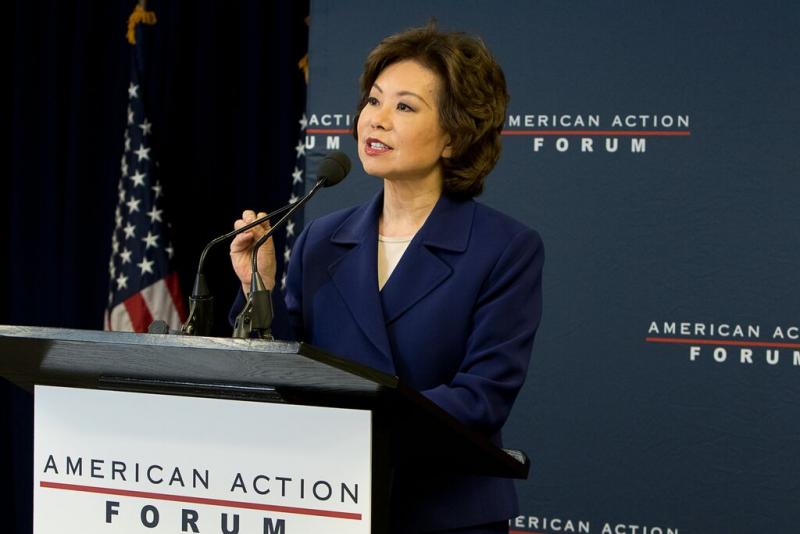
The American Action Forum hosted an event last week titled, “Consumer Connection: How Social Media is Linking Consumers with Independent Sellers & Emerging Entrepreneurs.” The keynote, given by former Secretary of Labor Elaine Chao, discussed “the emerging new world of social commerce” through sharing economy companies such as Uber, Lyft, AirBnB, Snapgoods, and more.
Secretary Chao said:
“Some view the gig and sharing economies as unprecedented. But, in fact, the shift to more flexible, customized working arrangements is not new. It has been evolving for a long time.”
Though the concept of the sharing economy is not new, Secretary Chao pointed out how major labor laws were created during the depression era:
“At the time, they addressed important social issues such as child labor, industrial accidents, and the need to strengthen union democracy. But the Fair Labor Standards Act of 1938, which created the 40 hour workweek among other key reforms, is 77 years old. The Landrum Griffin Act mandating union financial transparency is 56 years old. The Occupational Health and Safety Act of 1970 is 45 years old. And the pension protection law commonly known as ERISA is 41 years old. Updating the regulations supporting these laws is difficult, expensive, time consuming and requires a lot of political capital.”
Secretary Chao believes we have a perfect opportunity to capitalize on the sharing economy, not only for consumers but also for workers:
“I believe there is room in our economy for a variety of approaches. We need to preserve the protections of the past for those who need them, while crafting new solutions that better fit the preferences of workers in the sharing economy. The digitally-enabled, peer- to- peer economy has provided an important safety net for many families during difficult times. At a minimum, government policies must not stifle the innovation that has made this sector such an explosive driver of job growth and opportunity.”
AAF Director of Technology and Innovation Policy Will Rinehart recently published a paper explaining the consumer benefits of the sharing economy and the harm of excessive regulation in this sphere. The paper is titled The Modern Online Gig Economy, Consumer Benefit, and the Importance of Regulatory Humility and is available here.
Photo by Ben Zweig of DC Event Photo — www.DCEventPhoto.com

